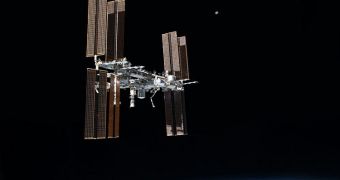The fact that astronauts who spend a few months in space exhibit significant muscle and bone density loss is no longer a secret. In a new study, NASA experts highlight some of the measures that future missions could employ in order to safeguard the health of their crews.
Experts at the Johnson Space Center (JSC) in Houston, Texas, led by nutritionist Scott M. Smith, say that eating a balanced diet and working out for prolonged periods of time can reduce the amount of muscle and bone mass lost to the effects of microgravity.
These health issues are not that important for astronauts spending just 6 months in low-Earth orbit, aboard the International Space Station (ISS). Upon returning home, crew members undergo physical therapy, which eventually allows them to regain their strength.
However, a roundtrip to Mars would take anywhere from 15 to 18 months. During such a long interval, bone and muscle strength could decrease significantly, impairing astronauts' mobility even after they return home and undergo recovery therapy.
In the new paper, published in the August issue of the esteemed Journal of Bone and Mineral Research, JSC experts detail how eating properly and working out can help alleviate the severity of these side effects of prolonged space travel.
For the study, the team analyzed data returned by ISS astronauts who used the Advanced Resistive Exercise Device (ARED). The tool was delivered to the orbital lab in 2008, and basically allows crew members to lift weights in weightlessness.
The group cross-referenced this information with datasets returned by astronauts who lived on the station before the arrival of the ARED. By comparison, crew members in the first group returned home with more muscle/bone mass and less bodily fat than astronauts in the second group.
An important factor in preserving the integrity of astronauts' bodies was most likely the increased intake of both calories and vitamin D. The latter is known for its role in allowing calcium to be absorbed by bones, strengthening them.
“After 51 years of human spaceflight, these data mark the first significant progress in protecting bone through diet and exercise,” says Smith, the lead author of the research paper.

 14 DAY TRIAL //
14 DAY TRIAL //